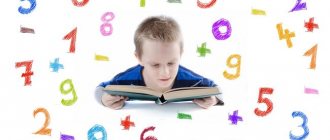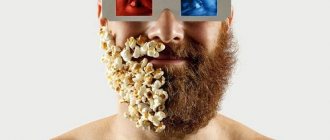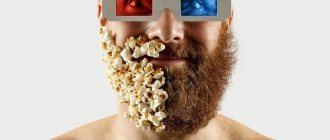Many mental disorders begin to develop in early childhood, but cannot be diagnosed until the child is 5 years old. The diagnosis of ADHD is most often made in early preschool age, although symptoms of the disorder may appear earlier. This is due to the fact that diagnosing attention deficit hyperactivity disorder requires an assessment of the child’s learning ability, his social functions, as well as an analysis of behavior in different settings (at home and at school).
Attention deficit disorder is one of the most controversial diagnoses. There is an opinion among many ordinary people that this is just another “fashionable” disorder that justifies laziness and bad upbringing. But this is far from true. Even at the beginning of the twentieth century, scientific works appeared that described several children with increased impulsiveness, hyperreactivity and inattention. Today, ADHD symptoms appear in approximately 6% of the population, but only 2% of people seek qualified medical help. This psychological disorder is more often diagnosed in boys. It is less common among girls, but its treatment requires a more serious approach. In addition, the symptoms of ADHD in the fairer sex are less pronounced, and hyperactivity may be absent altogether.
Raising and educating children with the syndrome is very difficult. Many parents cannot come to terms with the idea that their child may have a mental disorder. They blame others, the school, and, somewhat less frequently, themselves for their child’s behavior. But if you take the necessary measures in time, you can significantly improve the child’s condition. To do this, first of all, you need to understand what attention deficit hyperactivity disorder is.
MAIN SYMPTOMS
Children suffering from attention deficit disorder learn very poorly. It is difficult for them to concentrate on the teacher’s explanation and completing the task. This is not due to whim or caprice. They cannot absorb information and concentrate on studying due to a lack of biologically active substances in certain parts of the brain.
ADHD symptoms manifest themselves in the behavior of children, which is noticeably different from the actions and actions of their healthy peers:
- Inattention. The child is very easily distracted and suffers from forgetfulness. Difficulties arise when completing tasks; he is not organized and does not follow instructions. When explaining new material or a task, it may seem that the child is not listening to the adult. A large number of errors are due to increased inattention. Such children often lose their things and school supplies.
- Hyperactivity. The disorder is characterized by constant movement. The child simply cannot sit still. During class, he may get up at the most inopportune times. The child seems fussy, impatient, and overly sociable.
- Impulsiveness. The desire to achieve pleasure in such children is much higher; they are not able to wait for their turn. Often they shout out from their seats, interrupting their interlocutor or teacher. If such a child wants something, he will demand it right away; it will not be possible to persuade him.
These symptoms of the disorder are basic, but even healthy children can sometimes be inattentive or overactive. To be able to talk about the presence of this pathology, it is necessary to conduct a thorough study. The doctor observes the little patient for a long time, at least six months. In order for the analysis of a child’s behavior to be complete and comprehensive, it will be necessary to assess his behavior in different conditions.
How is the syndrome treated?
Correction of ADHD is carried out in a complex - drug therapy, physiotherapy, psychotherapy.
In the most difficult cases, drug treatment is prescribed. But, basically, it doesn’t come to this; serious medications are not recommended for children at such a young age. If a neuropsychiatrist or pediatrician nevertheless prescribes a psychocorrective drug, it should be taken only under the supervision of a doctor, and parents are advised to closely monitor changes in the child’s behavior and mood.
Physiotherapy will help improve cerebral circulation, normalize vascular tone, stabilize the psycho-emotional background, and reduce excitability.
Consultations with a child psychologist take place in a playful way and help to involve the child in the team and react correctly to the world and situations around him. Using effective psychological methods, a specialist will teach the child to better understand his own emotions, control impulsiveness and behavior, reduce the level of anxiety and develop attention and perseverance.
CAUSES OF ATTENTION DEFICIENCY SYNDROME
Today, no one can say for sure why a child develops ADHD symptoms. Among the factors that give impetus to the development of attention deficit disorder are:
- heredity. Researchers have noted that the presence of this disorder in parents several times increases the likelihood of its development in children. Attention deficit disorder is often genetic in nature and can therefore be inherited;
- drinking alcohol and smoking during pregnancy can lead to impaired brain function in the fetus, which leads to the appearance of ADHD symptoms in the child in the future;
- a difficult pregnancy, infectious diseases suffered by a woman during this time can also lead to the child developing attention deficit disorder. The risk of developing this mental disorder increases several times among children born prematurely;
- Predisposition to the development of the disorder is increased by brain injuries of varying severity suffered by a child at an early age, as well as diseases of an infectious nature.
In some cases, attention deficit disorder occurs as a symptom of another mental disorder, for example, delayed speech or psycho-speech development. Some life circumstances or pathological processes in the body can manifest themselves in the same way as the symptoms of ADHD. Among them are:
- A sudden change in lifestyle, moving, parental divorce or death of a loved one.
- Malfunction of the thyroid gland.
- Poisoning with heavy metals, in particular lead.
- Depression and sleep disorders.
Experts believe that it is impossible to completely eliminate the symptoms of ADHD. This disorder is considered an incurable pathology. But it is still possible to help a child. Properly organized therapy will allow the patient to learn better, gain the necessary social skills and adapt to society.
Relaxation techniques for ADHD
Periodic relaxation of the whole body helps reduce the severity of attention deficit symptoms. Regular relaxation practice enhances concentration, helps you concentrate, and get rid of feelings of anxiety and depression. The following techniques work most effectively for ADHD:
- Meditation is the exact opposite of hyperactivity disorder and attention disorder. Its main goal is to focus on achieving the goal. During meditation, a person relaxes physically and emotionally, which allows him to focus on a specific thought. It has been scientifically proven that during meditation the activity of that part of the brain that controls attention, memory, and responses is activated;
- Yoga is a combination of meditation and physical activity. Holding poses in yoga develops balance and teaches control over your body. Yoga also teaches you how to breathe correctly, which helps you relax and focus on your goals. Yoga helps restore mental balance and improve your mood.
Also, to smooth out the symptoms of ADHD, adults attend various trainings on time management, self-organization, participate in thematic role-playing games and art therapy, and resort to the help of specialized coaches. However, the surest and most effective solution would be to make an appointment with an experienced psychologist.
Need a consultation with a psychologist? Call and make an appointment for a consultation in Moscow 8 (999) 333-37-77 (from 10.00 to 22.00) daily. Cost of consultation - Services and prices. The address for the consultation is in the Contacts section. You can also ask a question online or get a free consultation.
TYPES OF ADHD
Highly qualified specialists practice an individual approach to the treatment of the syndrome. This is due, first of all, to the fact that for successful recovery it is necessary to eliminate the causes of the pathology. To date, several types of this disorder have been identified, requiring different approaches to therapy:
- the classic form is associated with disturbances in the functioning of the frontal lobe cortex. In this case, classic ADHD symptoms will appear, such as instability of attention, absent-mindedness, disorientation, etc. To achieve lasting results, drug therapy can be used to increase dopamine levels in the brain. Patients are advised to reduce their intake of simple carbohydrates and introduce high-protein foods into their diet;
- inattentive type. The core symptoms of ADHD will be complemented by a tendency to become self-obsessed, lack of energy, detachment and lack of motivation. This type of disorder is usually diagnosed at an older age and is more common in girls. The development of the inattentive type of ADHD is caused by a decrease in brain activity in the cerebellum and frontal cortex;
- attention deficit disorder with excessive fixation. Classic ADHD symptoms in this case are combined with a tendency to dwell on negative thoughts and obsessive behavior. Patients with this type of disease are overly touchy and restless, often argue and go against their mentors;
- If there is a disorder in the temporal lobes of ADHD, symptoms will include increased temperament. The patient may experience a feeling of anxiety, headaches and discomfort in the abdominal area. Characterized by the appearance of gloomy thoughts, memory problems, difficulties in reading texts, as well as incorrect interpretation of comments addressed to the patient;
- limbic type. Primary ADHD symptoms are accompanied by melancholy, a desire to isolate oneself from others, low self-esteem, sleep disorders and lack of appetite. Stimulants should not be used to treat this type of syndrome, as they can lead to the development of depression.
Also, the main symptoms of the disorder may be accompanied by outbursts of anger and moodiness, a desire to always be in opposition and increased talkativeness, hypersensitivity to loud sounds and bright lights, as well as hasty thinking.
Proper nutrition
Proper nutrition is important not only for a slim figure, but also for the stability of your emotional state. When managing ADHD symptoms, it's not just what a person eats, but also how they eat it. Many people with hyperactivity disorder eat erratically and can go without food all day and then eat their daily allowance. This eating behavior is the result of a lack of planning skills and impulsive decisions. Recommendations for normalizing eating behavior:
- Plan your meals - main meals and snacks should be prepared in advance (usually 2-3 days in advance). Chaotic eating increases the symptoms of hyperactivity, so food should be ready before the feeling of hunger appears;
- Control the amount of microelements consumed, namely zinc, magnesium, iron. If your intake is insufficient, start taking multivitamins;
- Protein and complex carbohydrates are necessary for a good mood, filling with energy, and combating irritability;
- Eat foods high in omega-3. These fatty acids promote concentration and reduce hyperactivity.
DIAGNOSTICS
Many people mistakenly believe that attention deficit disorder is a disorder of overactive boys. But among patients there are those who are not characterized by hyperactivity. In this case, the symptoms of the disorder are blurred and it is even more difficult to identify them. Often, due attention is not paid to the disease in such children; they are constantly reproached for laziness, willfulness, lack of motivation, and are also called stupid.
The main difference between this syndrome and other types of mental disorders is the complete absence of clear laboratory or instrumental diagnostic methods. In the diagnostic process, specialists mainly rely on stories from relatives, teachers and other people from the child’s close circle.
Diagnosis of ADHD is preceded by painstaking work. A child whose behavior causes concern is monitored over a long period of time. A pediatrician or child psychologist collects information, interviews teachers and other mentors, and seeks the opinions of parents, guardians, or other family members. Also at the diagnostic stage, a full medical examination of the child is carried out, this allows ADHD symptoms to be differentiated from other psychological disorders or diseases that can lead to behavior changes.
During interviews to collect information about the patient, the doctor pays great attention to the situation in his family. Parents also fill out forms and questionnaires regarding themselves and close relatives. This can help identify if there are problems in family relationships that may cause the child to exhibit symptoms of ADHD. The mental health of other family members is also assessed, because, as mentioned, the presence of the syndrome is due to genetic predisposition.
The final stage of diagnosis is the analysis of the information received. A diagnosis can be made if the following statements are confirmed:
- the main symptoms of ADHD (inattention, impulsivity, etc.) are intensely expressed, the degree of their manifestation does not correspond to the age of the patient. Manifestations of the disorder are observed for a long time;
- manifestations of the disorder penetrate into all areas of life, leading to significant complications. Children can be capricious in different situations when they are tired, do not get enough sleep, want to eat, etc. But to make a diagnosis, it is necessary to find confirmation that the child’s behavior creates problems for others and for himself;
- Signs of ADHD appear early in life and are persistent. If signs of pathology show themselves from time to time, then they are most likely due to other reasons;
- ADHD symptoms are not associated with the presence of other somatic, psychosomatic or mental disorders in the child. To identify such a relationship, a more thorough medical examination of the patient is carried out.
Despite the fact that specialists use some diagnostic criteria in their work, the final diagnosis is made solely from the subjective opinion of the doctor, which, in turn, is also based on the subjective opinions of teachers and relatives. Therefore, there is a high risk of error. To avoid this, it is necessary to approach the diagnosis of attention deficit disorder with special care.
Who diagnoses ADHD and how?
Diagnosis is carried out by several specialists: neuropsychiatrist, pediatrician, neuropsychologist, speech therapist-defectologist. In addition to the medical examination, the child is monitored and parents are asked to get involved. Preschoolers are given oral psychological tests, and a symptom survey is completed by parents.
ADHD is diagnosed when:
- the presence of pronounced symptoms that do not go away within six months;
- constantly and everywhere showing signs of disorder (in kindergarten, on the playground, during a walk, and at home).
When making a diagnosis, it is important not to confuse ADHD with other conditions that can also affect behavior and development.
You can undergo training and obtain the profession of a neuropsychologist on our distance professional retraining course. You will master a new interesting direction and will be able to diagnose, treat and prevent ADHD and other disorders in the field of neuropsychology in children.
TREATMENT
Treatment often uses medications to relieve ADHD symptoms. These include various stimulants, most often prescribed methylphenidade, nootropic drugs, as well as antipsychotics that can reduce the child’s excitability and hyperactivity.
Drug treatment is aimed at eliminating the physical problem that led to the development of the disorder. The main symptoms of ADHD become less pronounced due to the normalization of blood circulation in all parts of the brain and the correction of pathologies in the cervical spine, which often occur due to birth injuries.
But most experts believe that the use of medications is justified only in isolated cases; many children can be cured using psychocorrection methods. The most successful in eliminating the symptoms of ADHD is applied behavioral analysis, which is used when working with young children, as well as cognitive behavioral therapy, which is applicable in mental correction in young people and adolescents.
Psychological counseling
A psychotherapist can help you cope with the symptoms of hyperactivity and attention disorder. Various psychotherapeutic techniques are aimed at developing new skills, combating negative attitudes, and managing irritability and anger. Therapeutic sessions can improve stress resistance, control impulsivity, and improve organizational abilities.
The following types of psychotherapy for attention deficit disorder in adults are distinguished:
- Personal form - involves struggling with life failures, educational difficulties, problems with professional self-realization, conflicts with others. Individual work helps to cope with feelings of anxiety, shame, irritability, low self-esteem, resentment and a sense of injustice;
- The family form - first of all, involves working through the problems that arise between spouses due to ADHD symptoms. Psychotherapy will help you concentrate on a constructive solution to problems in communication between spouses, smooth out conflicts of a material nature, get rid of impulsive behavior, and accept family responsibilities to each other. The family form is also effective for normalizing relations between adult children and parents.
- Cognitive form - aimed at searching and identifying negative attitudes, beliefs, positions that are accompanied by problems in social life.
The main goal of psychological counseling using the behavioral method is to develop a realistic outlook on life and a hopeful perception of the world. Cognitive therapy also helps to cope with disorganization, increase productivity, and plan your time more effectively.
RECOMMENDATIONS FOR PARENTS OF CHILDREN WITH ADHD
Only a qualified doctor can diagnose, diagnose and prescribe competent treatment for attention deficit symptoms. But the child’s recovery largely depends on his parents. First of all, they must accept their baby and realize that his behavior is not the result of upbringing, but a consequence of the disease.
To eliminate ADHD symptoms, experts recommend adhering to the following behavioral strategies at home:
- Create a daily routine and strictly follow it. It is very important that your child sleeps enough time. A child who does not get enough sleep becomes more capricious, aggressive, and loses the ability to concentrate.
- Monitor the child's nutrition. Many researchers claim that ADHD symptoms depend on what is included in the baby's daily diet. Children suffering from attention deficit disorder are often deficient in omega-3 acids. Therefore, sea fish should be a mandatory part of the children's menu. You can give your child fish oil or multivitamin supplements containing magnesium and B vitamins. These micronutrients also reduce ADHD symptoms. In addition, it is necessary to exclude from the diet foods high in gluten (cereals), casein (milk) and polysaccharides. Carbohydrates should be supplied to the body from fruits and vegetables, and it is best to avoid eating sweets, potatoes, rice and flour dishes. The diet of a child with attention deficit disorder should include plenty of meat, eggs, legumes, nuts and cheese.
- Organize the space of the children's room in such a way that all the child's things have certain places. The baby will be less likely to lose them. Various sources describe ADHD symptoms, and one of the most persistent is called the inability to organize. This greatly complicates the process of social adaptation of the child. A clear organization of space will make life a little easier for the baby.
- During classes, all distractions should be eliminated. Be sure to turn off the TV, computer, radio, etc. A child who exhibits the core symptoms of ADHD has difficulty concentrating. Therefore, parents should make sure that nothing disturbs him.
- Give your child the right to choose. When he gets dressed, offer two sets of clothes, and during meals - several types of dishes. But the number of options should not be too large - otherwise it can lead to the development of emotional and sensory overload.
- When talking with your child, try to give precise instructions. All instructions must contain a minimum of information. It is necessary to refrain from persuasion and threats.
- Set realistic goals for your child so that he can cope with them. A child's success must be rewarded. Use visuals to display his achievements.
- Help your child find an activity in which he can achieve success. This will develop social communication skills and also improve your child's self-esteem.
Parents can help a child overcome the symptoms of ADHD; without their participation, even the best therapy will be ineffective. The best remedy for most psychological disorders in children is the love, support and understanding of the closest people - mom and dad!
Prevention
Unfortunately, it is not always possible to prevent the development of ADHD. However, there are some factors that significantly reduce the risk of developing pathology. For example, an expectant mother should maintain a healthy lifestyle, eat a balanced diet, and give up bad habits. Before conception, it is advisable to undergo a full examination, and, if necessary, to treat existing pathologies in advance.
Also, as a preventive measure for ADHD, the following recommendations must be followed:
- The child should be active and walk outdoors more often.
- The daily and nutritional regimen should be clear.
- Monitor the child’s behavior and immediately stop unacceptable behavior on his part.
- It is very important to build trusting relationships between parents and children.
- Family conflicts should be avoided.
At the first signs of ADHD, it is recommended to consult a specialist who will help minimize the risk of developing more serious pathologies in the future.
You can learn more about the treatment of attention deficit hyperactivity disorder during an in-person consultation with a doctor. Be healthy!
Hyperactivity in preschoolers and schoolchildren
The first symptoms can be seen already in infancy. However, inexperienced parents may take for granted that the baby whines a lot, is capricious, and constantly “hangs in his arms.” He has increased motor activity. Movements of the arms and legs are often chaotic. He has difficulty falling asleep and wakes up every now and then. The baby may be bothered by headaches, which the parents are not aware of, since he cannot yet talk about it. There is a speech delay.
All these signs can be caused by other factors not related to hyperactivity syndrome. Therefore, only an experienced specialist can diagnose ADHD in infants.
The first signs of ADHD, starting in infancy, may appear in the form of the following symptoms:
- frequent movements of arms and legs;
- chaotic movements;
- delayed speech development;
- clumsiness;
- disinhibition, lack of control in behavior;
- restlessness;
- inattention;
- inability to maintain attention on a subject;
- frequent mood changes;
- constant haste;
- difficulty communicating and establishing contacts with peers;
- absence of fear
Schooling for a child with ADHD becomes a burden for him or her. Due to his physiology, the student cannot sit quietly in one place, during the lesson he is distracted and disturbs others, he cannot concentrate his attention, he is of little interest in school subjects, during the lesson he can walk around the class or asks for leave under the guise of “going to the toilet”, and he himself walks through the school spaces.
Causes and risk factors
The exact cause of ADHD is unknown. Possible causes of violations may be:
- General deterioration of the environmental situation.
- Infections of the mother during pregnancy and the effects of medications, alcohol, drugs, smoking during this period.
- Immunological incompatibility (Rh factor).
- Threats of miscarriage.
- Chronic diseases of the mother.
- Premature, rapid or prolonged labor, stimulation of labor, anesthesia poisoning, cesarean section.
- Birth complications (improper presentation of the fetus, entanglement of the umbilical cord) lead to injuries to the fetal spine, asphyxia, and internal cerebral hemorrhages.
- Any illness in infants with high fever and taking strong medications.
- Asthma, pneumonia, heart failure, diabetes, and kidney disease can act as factors that disrupt normal brain function.
- Long-term therapy (more than a month) with paracetamol during pregnancy
Frequent conflicts in the family, excessive severity towards the child, physical punishment are factors that can trigger the development of ADHD.










